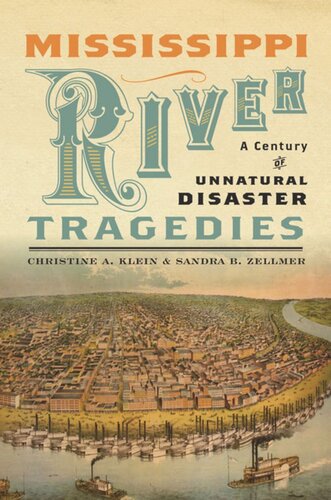

Most ebook files are in PDF format, so you can easily read them using various software such as Foxit Reader or directly on the Google Chrome browser.
Some ebook files are released by publishers in other formats such as .awz, .mobi, .epub, .fb2, etc. You may need to install specific software to read these formats on mobile/PC, such as Calibre.
Please read the tutorial at this link: https://ebookbell.com/faq
We offer FREE conversion to the popular formats you request; however, this may take some time. Therefore, right after payment, please email us, and we will try to provide the service as quickly as possible.
For some exceptional file formats or broken links (if any), please refrain from opening any disputes. Instead, email us first, and we will try to assist within a maximum of 6 hours.
EbookBell Team

4.7
76 reviewsRead a free excerpt here!
American engineers have done astounding things to bend the Mississippi River to their will: forcing one of its tributaries to flow uphill, transforming over a thousand miles of roiling currents into a placid staircase of water, and wresting the lower half of the river apart from its floodplain. American law has aided and abetted these feats. But despite our best efforts, so-called “natural disasters” continue to strike the Mississippi basin, as raging floodwaters decimate waterfront communities and abandoned towns literally crumble into the Gulf of Mexico. In some places, only the tombstones remain, leaning at odd angles as the underlying soil erodes away. Mississippi River Tragedies reveals that it is seductively deceptive—but horribly misleading—to call such catastrophes “natural.”
Authors Christine A. Klein and Sandra B. Zellmer present a sympathetic account of the human dreams, pride, and foibles that got us to this point, weaving together engaging historical narratives and accessible law stories drawn from actual courtroom dramas. The authors deftly uncover the larger story of how the law reflects and even amplifies our ambivalent attitude toward nature—simultaneously revering wild rivers and places for what they are, while working feverishly to change them into something else. Despite their sobering revelations, the authors’ final message is one of hope. Although the acknowledgement of human responsibility for unnatural disasters can lead to blame, guilt, and liability, it can also prod us to confront the consequences of our actions, leading to a liberating sense of possibility and to the knowledge necessary to avoid future disasters.